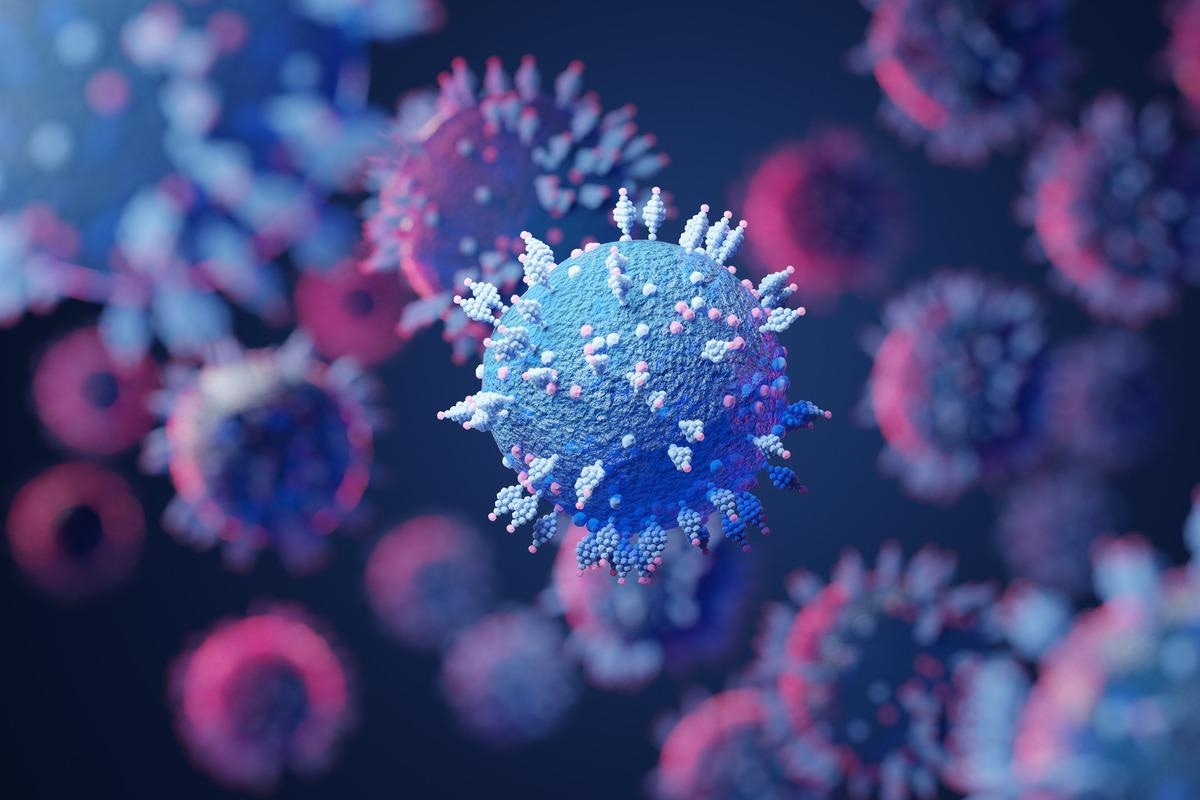Scientists from the Medical University of Vienna, Austria, have recently evaluated the cross-neutralizing potency of serum samples collected from coronavirus disease 2019 (COVID-19) vaccinated and unvaccinated individuals who have been infected with the omicron BA.1 or BA.2 variants of severe acute respiratory syndrome coronavirus 2 (SARS-CoV-2).
The findings reveal that fully vaccinated individuals with omicron breakthrough infections can generate cross-reactive neutralizing antibodies against wild-type SARS-CoV-2, delta variant, and omicron BA.1 and BA.2 variants.
 Study: Human primary Omicron BA.1 and BA.2 infections result in sub-lineage-specific neutralization. Image Credit: Fit Ztudio/Shutterstock
Study: Human primary Omicron BA.1 and BA.2 infections result in sub-lineage-specific neutralization. Image Credit: Fit Ztudio/Shutterstock

 *Important notice: Research Square publishes preliminary scientific reports that are not peer-reviewed and, therefore, should not be regarded as conclusive, guide clinical practice/health-related behavior, or treated as established information.
*Important notice: Research Square publishes preliminary scientific reports that are not peer-reviewed and, therefore, should not be regarded as conclusive, guide clinical practice/health-related behavior, or treated as established information.
The study is currently available on the Research Square* preprint server while under consideration at a Nature Portfolio Journal.
Background
The most recently emerged omicron variant of SARS-CoV-2 exhibits a heavily mutated genome compared to other known variants of concern (VOCs). With high numbers of spike mutations, the variant is capable of evading host immunity induced by prior infection or vaccination. There are three distinct sub-lineages of the omicron variant, including BA.1, BA.2, and BA.3. All sub-lineages are characterized by a heavily mutated spike protein.
In individuals without pre-existing immunity, omicron BA.1 infections have been found to induce significantly lower level of neutralizing antibody response against SARS-CoV-2 variants that were circulating before the emergence of omicron. Currently, the BA.2 sub-lineage is gaining global dominance by rapidly replacing the BA.1 sub-lineage. This highlights the possibility of higher transmissibility and immune-evasion ability of the BA.2 sub-lineage than the BA.1 sub-lineage.
In the current study, the scientists have evaluated BA.1, BA.2, and delta-neutralizing ability of serum samples collected from individuals with primary or breakthrough BA.1 or BA.2 infection.
Study design
The scientists collected serum samples from three distinct groups of individuals. The first group included individuals with a history of wild-type SARS-CoV-2, BA.1, or BA.2 infection. The second group included fully vaccinated individuals (three doses of mRNA-based COVID-19 vaccine) with BA.1 or BA.2 breakthrough infection. The third group included individuals with or without prior infection who had received three doses of COVID-19 vaccine.
The neutralizing potency of collected serum samples was tested against wild-type SARS-CoV-2, delta variant, and omicron BA.1 and BA.2 variants.
Important observations
The serum samples collected three weeks and three months after the third vaccine dose showed potent cross-neutralizing ability against omicron variants (BA.1 and BA.2). However, the neutralizing titer was significantly lower than that against the wild-type virus. The serum samples collected from individuals who had wild-type infection before receiving three vaccine doses also showed cross-neutralizing ability against omicron variants.
The serum samples obtained from wild-type or omicron (BA.1/BA.2)-infected individuals showed significantly lower neutralizing potency against tested variants. Specifically, samples collected three weeks and six months after wild-type infection showed significantly lower neutralizing titers against the omicron variants.
The samples collected from BA.1-infected individuals showed lower neutralizing potency against wild-type virus, delta variant, and BA.2 variant compared to that against the BA.1 variant. In contrast, samples collected after primary BA.2 infection failed to cross-neutralize other tested variants. However, samples collected from individuals with omicron breakthrough infections showed equivalent neutralizing potency against all tested variants (wild-type, delta, and omicron BA.1 and BA.2).
These findings indicate that infections with omicron variants in unvaccinated individuals, especially BA.2 infections, induce variant-specific neutralizing titers. In contrast, omicron breakthrough infections in vaccinated individuals with pre-existing immunity can induce cross-reactive neutralizing antibodies.
Study significance
The study highlights the significance of COVID-19 booster vaccination in inducing cross-neutralizing antibodies. Importantly, the study demonstrates that primary infections with omicron BA.1 and BA.2 induce variant-specific neutralizing antibodies. These two sub-lineages of the omicron variant have similar mutational landscape in the spike protein.
However, mutations present in the N-terminal domain (NTD) of these sub-lineages vary significantly. The antigenic difference observed between the BA.1 and BA.2 sub-lineages could be due to the variation in their NTDs, which contain potent neutralizing epitopes.

 *Important notice: Research Square publishes preliminary scientific reports that are not peer-reviewed and, therefore, should not be regarded as conclusive, guide clinical practice/health-related behavior, or treated as established information.
*Important notice: Research Square publishes preliminary scientific reports that are not peer-reviewed and, therefore, should not be regarded as conclusive, guide clinical practice/health-related behavior, or treated as established information.